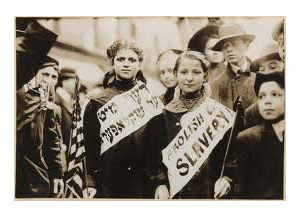Once upon a time in a far away land there lived a king who had a Jewish advisor. The king relied so much on the wisdom of his Jewish advisor that one day he decided to elevate him to head advisor. After it was announced, the other advisors objected. After all, it was bad enough just to sit in counsel with a Jew. But to allow one to 'Lord it over them,' was just too much to bear.
Being a compassionate ruler, the King agreed with them, and ordered the Jew to convert. What could the Jew do? One had to obey the King, and so he did. As soon as the act was done, the Jew felt great remorse for this terrible decision. As days became weeks, his remorse turned to despondency, and as months passed, his mental depression took its toll on his physical health. He became weaker and weaker. Finally he could stand it no longer. His mind was made up. He burst in on the king and cried, "I was born a Jew and a Jew I must die. Do what you want with me, but I can no longer deny my faith."
The King was very surprised. He had no idea that the Jew felt so strongly about it. "Well, if that is how you feel," he said, "then the other advisors will just have to learn to live with it. Your counsel is much too important to me to do without. Go and be a Jew again" he said.
The Jew felt elated. He hurried back home to tell the good news to his family. He felt the strength surge back into his body as he ran. Finally, he burst into the house and called out to his wife.
"Rifka.....Rifka, we can be Jews again, we can be Jews again!”
His wife glared back at him angrily and said, "You couldn't wait until after Passover?"
While some of us may still experience preparing for Passover (cleaning, cooking, shlepping) as an act that makes us mindful of our ancestors status as slaves in Egypt, most of us probably don’t regard the observance of Passover as particularly burdensome. We may not be thrilled by the taste of matzah and we may suffer from chametz-withdrawal for a week, but we still derive deep spiritual satisfaction from our annual encounter with the “Feast of Freedom”.
The challenge, I believe, to keeping the experience of Passover fresh is to find and contemplate, each year, a contemporary challenge to freedom. We need not look far and wide; struggles for freedom surround us....the struggle for freedom from poverty-level wages, the struggle for freedom from opioid addiction, the struggle for freedom from homophobia and transphobia, the struggle to free Tibet from cultural genocide, the struggle to free ourselves from the pernicious effects of institutional racism, the struggle to free ourselves from habits of thinking that keep us from manifesting our full potential. There is, obviously, no shortage of “slaveries” in our world and in our own lives. The question is, what do we do after we recognize them?
This is the question that Passover comes to help us answer. In the story of our ancestors’ courage in setting off into the wilderness, in their overcoming their fears of an unknown future, we find behaviors worth emulating. Above all, the Passover story is one which speaks of human beings daring to overcome their limitations, to have faith in something bigger than themselves. And whether we find that strength in community, or one-day-at-a-time in a 12-step recovery meeting, or through engagement in the political process, or in a commitment to serving others, Passover provides us the perfect opportunity to evaluate our priorities and to determine how best we can step into the wilderness of need that surrounds us in order to create and find meaning there.
Chag sameach! May your Passover be a liberating experience!



